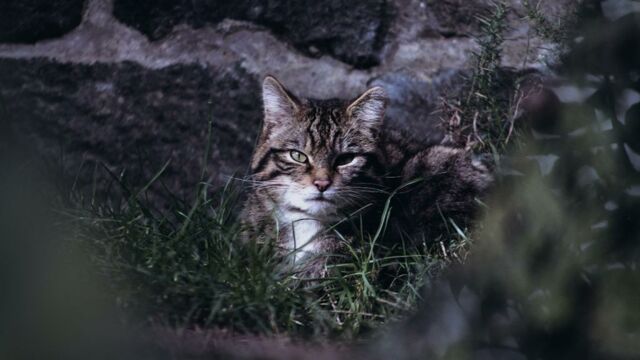Ten rarewildcat kittens have been born in Scotland and could be the first of their kind to be released into the wild.
Discover our latest podcast
Wildcats 'on the brink of extinction'
According to Saving Wildcats, wildcats are 'our rarest and most threatened mammal.' Also known as highland tigers, they were once widespread, but numbers have dropped drastically since the 19th century and they are now 'on the brink of extinction in Scotland.'
Indeed, according to a 2019 analysis by the International Union for Conservation of Nature (IUCN), wildcats are already 'functionally extinct' in Scotland. The reason for this is, according to Saving Wildcats, 'a sad history of habitat loss, persecution and, more recently, breeding with domestic cats.'
But now, two litters of wildcat kittens have been born at Royal Zoological Society of Scotland’s Highland Wildlife Park near Aviemore, as reported by The Independent. Saving Wildcats said:
In a quiet area away from visitors at the Royal Zoological Society of Scotland’s Highland Wildlife Park near Aviemore, the two litters of five were born to mums Tulla and Margaret, bringing the total number born in the European partnership project’s first ever breeding season up to 18 so far.
We are DELIGHTED ten more kittens have been born in our conservation breeding for release centre at @HighlandWPark 🧡
— Saving Wildcats (#SWAforLIFE) (@SaveOurWildcats) June 22, 2022
Born to mums Tulla and Margaret, the two litters of five could be among the first of their kind released into the Cairngorms next year 👉 https://t.co/JLG2xcM9Aqpic.twitter.com/sfUyo0FArZ
Could be released into the wild
They added that litters of five were 'incredibly rare in the captive breeding population, so to have two in one breeding season is incredibly exciting.' The kittens could grow up to be among the first of their kind to be released from captivity.
Saving Wildcats aims to breed and release the highland tigers into the wild in Scotland in order to restore the country’s critically endangered population. According to the IUCN, a carefully managed conservation breeding for release programme is the last chance for the survival of the species.
It is planned that the wildcats will be released into carefully selected locations in the Cairngorms National Park in 2023.
Read more:
⋙ Rare bear species discovered in Greenland after centuries of isolation
⋙ Rare Wild Cat species reappears after supposedly being extinct for 50 years
⋙ COVID: Big cats experience symptoms similar to humans upon infection















